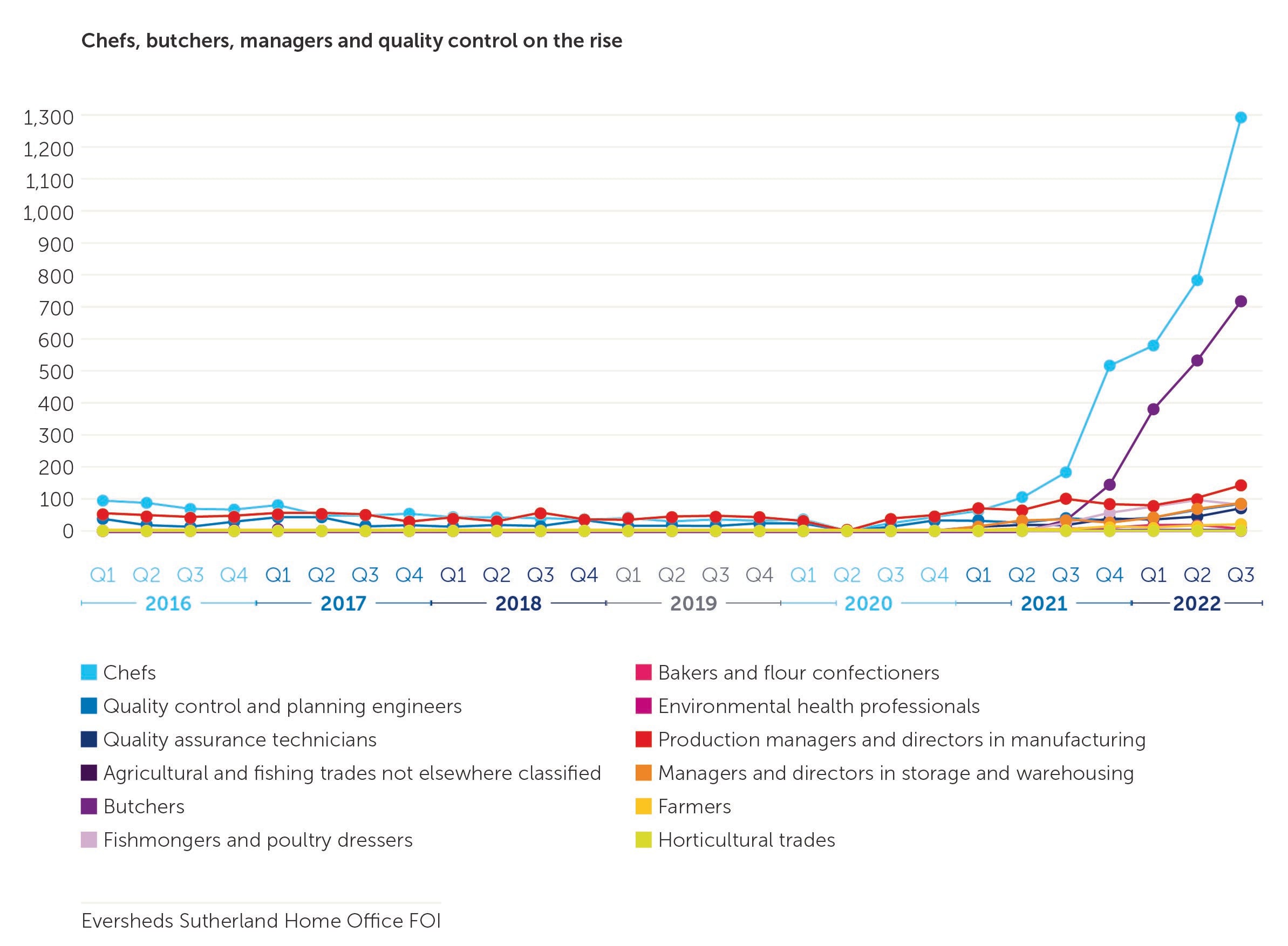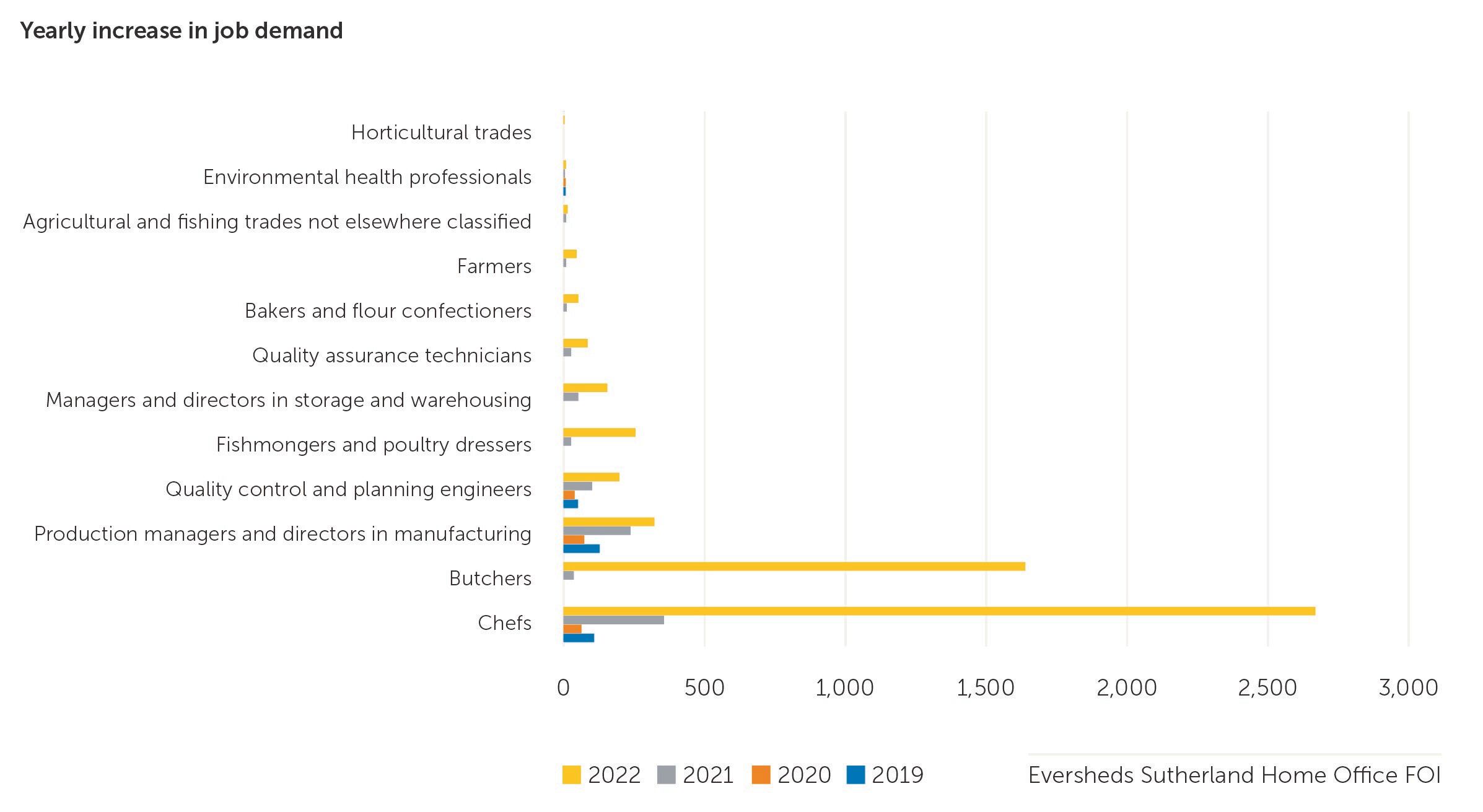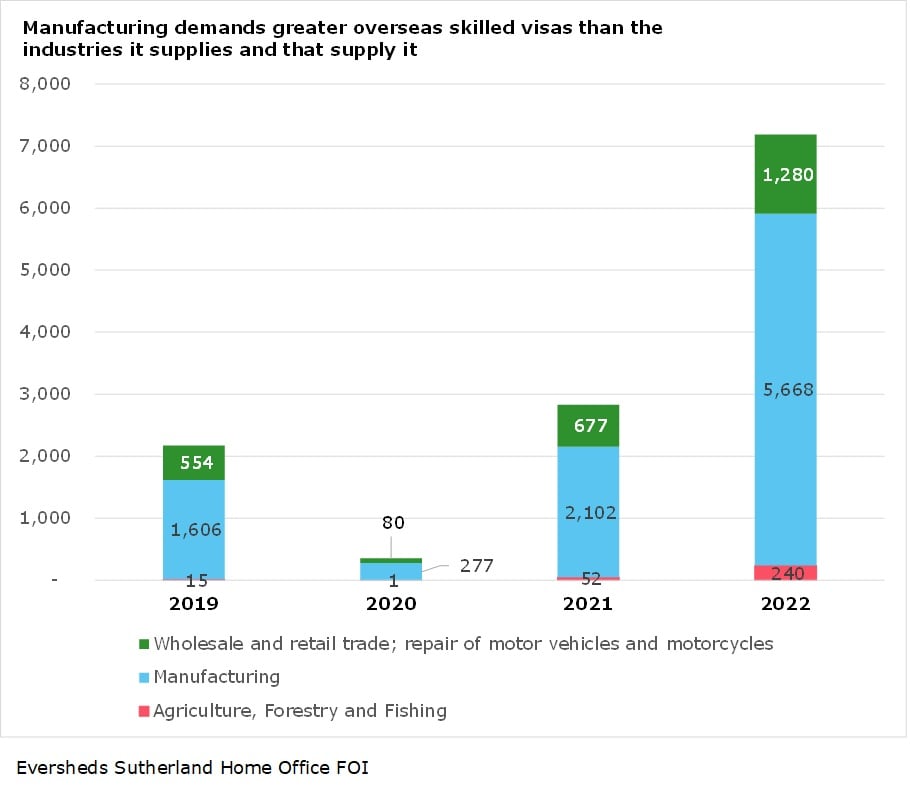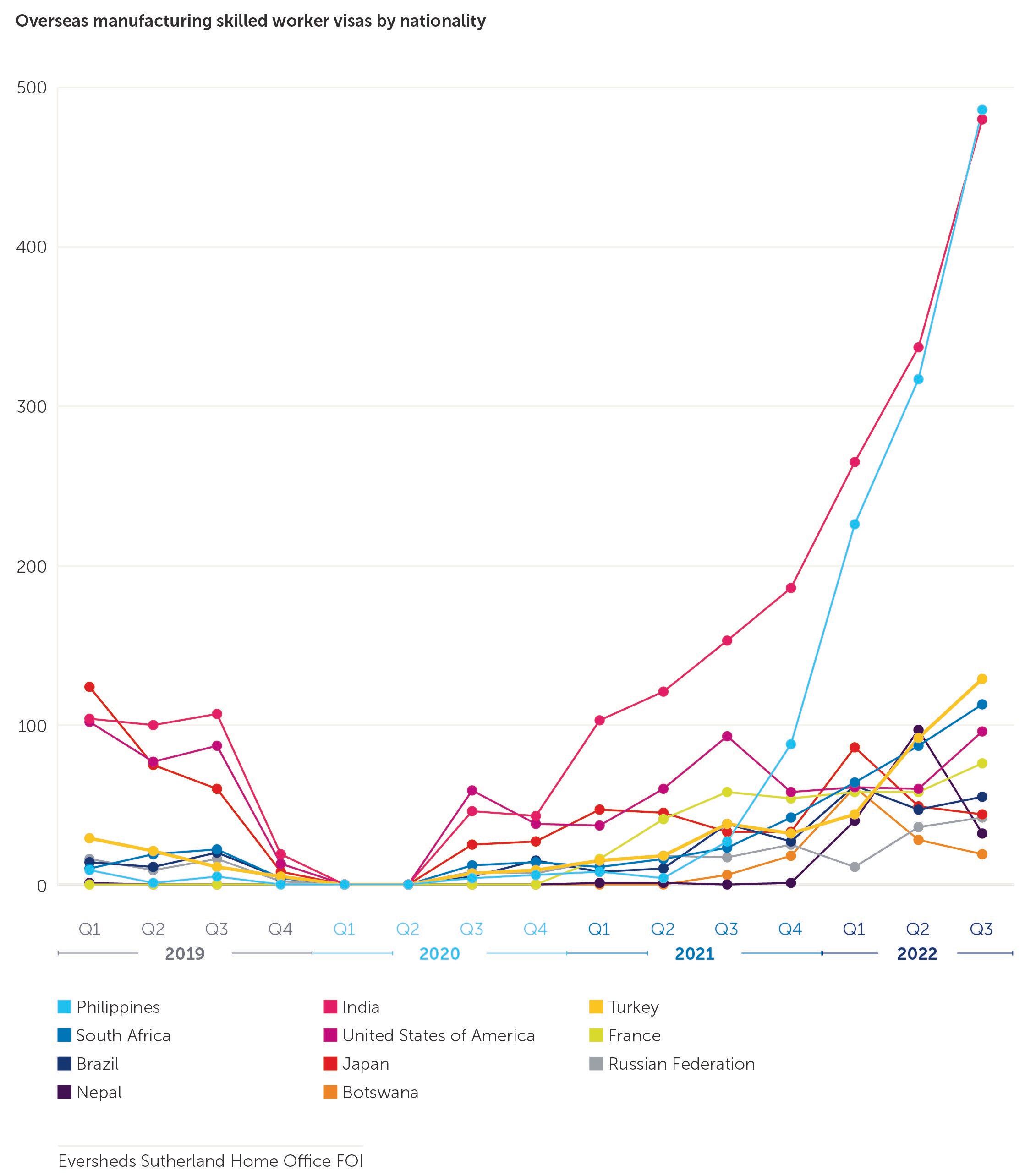Traditionally, the food manufacturing sector has been heavily reliant on labour from Europe. Both the pandemic and Brexit have caused skills shortages for the sector as employers can no longer rely on European free movement rights and the pandemic saw a significant proportion of overseas talent leave the UK and the temporary closure of some operations. As a result, the sector is increasingly looking overseas to ensure business continuity.
The Home Office has reacted by introducing temporary Seasonal Worker visa routes to support some areas of the sector. However, many employers who want to ensure consistency of workforce planning are considering sponsorship under the Skilled Worker route where the roles are capable of sponsorship.
For example, there has been a large increase in demand in overseas talent for Butchers in the UK due to skills shortages caused by Brexit and general difficulties attracting people to the profession. The sector has called for Butchers to be added to the shortage occupation list to facilitate the sponsorship process. The Home Office is reviewing the shortage occupation list for the UK, but there are no guarantees the role of a Butcher will be added.








